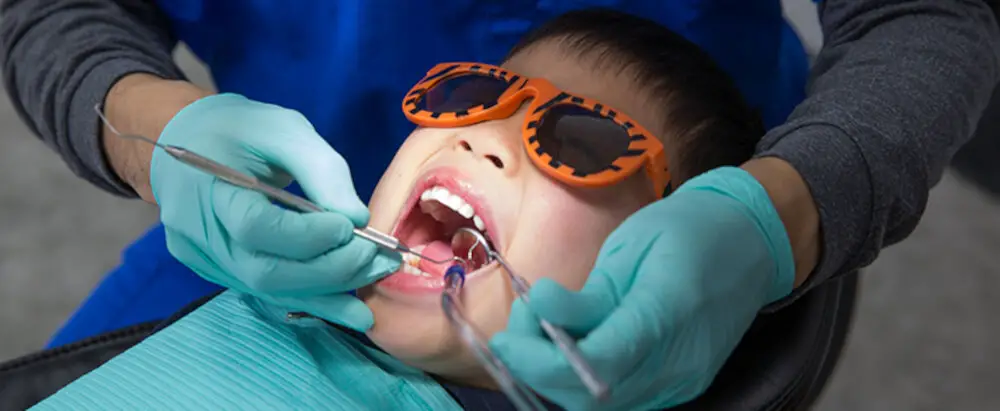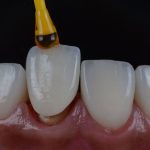Numbness After Wisdom Teeth Removal: How Long to Expect?

Wisdom teeth, also known as third molars, often cause discomfort and pain as they emerge. As a result, many individuals opt for their removal to alleviate the symptoms. While the procedure itself is relatively straightforward, it can result in some side effects, including numbness or tingling in the affected area. Numbness after wisdom teeth removal can be worrying, especially if it persists for an extended period. In this article, we will explore the causes of numbness after wisdom teeth extraction and how long it is expected to last. Numbness after wisdom teeth removal is a common side effect that occurs due to the proximity of the nerves in the area. The nerves that supply sensation to the lower lip, tongue, and chin are located close to the lower wisdom teeth. During the extraction procedure, these nerves can be affected, leading to numbness or tingling in the affected area. The duration of numbness can vary from person to person, and several factors can influence how long it lasts. Understanding the causes and duration of numbness after wisdom teeth removal can help individuals prepare for the recovery process and alleviate any concerns they may have.
Wisdom teeth removal is a common dental procedure that involves the extraction of the third molars located at the back of the mouth. These teeth usually emerge in the late teenage years or early adulthood and can cause discomfort, pain, and even infection if they do not properly fit within the mouth. The procedure is typically performed under local anesthesia or sedation to minimize pain and discomfort. After the surgery, patients may experience swelling, bleeding, and numbness in the mouth and face. While these symptoms are normal and usually subside within a few days to a week, it is important to follow post-operative instructions to ensure proper healing and minimize complications.
Numbness is a common side effect after wisdom teeth removal and can last for several hours or even days. This is caused by the use of local anesthesia during the procedure to numb the area around the teeth. Although it is a temporary condition, it can be unsettling for some patients. Other common side effects of wisdom teeth removal include pain, swelling, and bleeding. It is essential to follow the post-operative instructions provided by the dentist or oral surgeon to minimize these side effects and ensure a smooth recovery. If the numbness persists beyond the expected timeframe or is accompanied by other symptoms such as fever or difficulty breathing, it is important to seek medical attention immediately.
What Causes Numbness After Wisdom Teeth Removal?

Wisdom teeth removal is a common procedure that is performed by dentists and oral surgeons. One of the most common side effects of wisdom teeth removal is numbness in the chin, lower lip, and tongue. This numbness is caused by damage to the inferior alveolar nerve, which runs through the lower jaw and is responsible for sensation in the lower lip and chin. During the procedure, the nerve can be bruised, stretched, or even severed, resulting in temporary or permanent numbness. The duration of numbness after wisdom teeth removal depends on the extent of nerve damage. In most cases, the numbness is temporary and lasts for a few days or weeks. However, in some cases, the nerve can be permanently damaged, resulting in long-term numbness or even loss of sensation. Patients who experience numbness after wisdom teeth removal should contact their dentist or oral surgeon immediately to determine the extent of the nerve damage and to receive appropriate treatment. Overall, numbness after wisdom teeth removal is a common side effect that can range in severity and duration, but with proper care and attention, most patients can expect a full recovery.
During a wisdom teeth removal procedure, there is a risk of nerve damage due to the proximity of the nerves to the wisdom teeth roots. The inferior alveolar nerve and the lingual nerve are the two nerves that are most commonly affected. The inferior alveolar nerve provides sensation to the lower lip, chin, and teeth, while the lingual nerve provides sensation to the tongue. If either of these nerves is damaged during the procedure, it can result in numbness, tingling, or loss of sensation in the affected areas. In some cases, the nerve damage may be temporary and resolve on its own, but in other cases, it may be permanent. The risk of nerve damage can be minimized by choosing an experienced and qualified oral surgeon and by carefully following post-operative instructions.
Inflammation and swelling are common after wisdom teeth extraction, and they can have a significant impact on the nerves in the area. When the nerves are affected, it can lead to numbness, tingling, or even temporary paralysis. The inflammation and swelling can compress the nerves, causing them to become compressed or pinched, which can lead to a loss of sensation or movement. This is why it’s important to manage inflammation and swelling after wisdom teeth removal, as it can help prevent nerve damage and reduce the risk of numbness or other complications. Applying ice, taking anti-inflammatory medications, and following post-operative instructions from your dentist can help minimize inflammation and swelling, and reduce the risk of nerve damage.
Numbness after wisdom teeth removal is a common occurrence, and one of the possible causes of this condition is anesthesia. During the procedure, local anesthesia is administered to the patient to numb the area. The anesthetic can cause a temporary loss of sensation in the surrounding tissue, including the tongue, lips, and cheeks. However, in some cases, the numbness can persist for an extended period, which is known as paresthesia. This can be due to nerve damage caused by the anesthetic injection, which can result in altered sensation, tingling, or complete loss of feeling. If the numbness persists beyond a few days, it is advisable to consult a dentist or oral surgeon to evaluate the condition and recommend appropriate treatment.
How Long Does Numbness Last?

Numbness after wisdom teeth removal is a common symptom experienced by many people. The duration of numbness may vary depending on the individual and the complexity of the surgery. Typically, the numbness may last for a few hours to a few days, but in some cases, it may last for weeks or even months. The numbness occurs due to the anesthesia administered during the procedure, which affects the nerves in the area. It is a normal part of the healing process, and the sensation will gradually return as the nerves regenerate. It is essential to follow the post-operative instructions given by the dentist or oral surgeon to ensure proper healing and reduce the risk of complications. Patients should avoid hot or cold foods and drinks, smoking, and strenuous physical activities that may cause bleeding or swelling. If the numbness persists for more than a week or is accompanied by other symptoms such as severe pain or swelling, the patient should contact their dentist or oral surgeon immediately. In most cases, the numbness will gradually subside as the nerves heal, and the patient will regain normal sensation in the affected area.
The recovery timeline for numbness after wisdom teeth removal varies from person to person. Typically, the numbness should begin to subside within a few days after the procedure. However, it may take up to several months for complete sensation to return. It is important to follow your dentist or oral surgeon’s post-operative instructions to ensure a smooth and speedy recovery. This may include avoiding certain foods, taking prescribed medications, and practicing good oral hygiene. If you experience prolonged numbness or other concerning symptoms, be sure to contact your healthcare provider for further evaluation.
Numbness can occur after wisdom teeth removal surgery and can be categorized as either acute or chronic. Acute numbness is a temporary condition that typically lasts for several hours up to a few days after the procedure. It is generally caused by the anesthesia used during the surgery, which can affect the nerves and cause numbness in the mouth and jaw. On the other hand, chronic numbness is more long-lasting and can persist for weeks, months, or even years after the surgery. This type of numbness is usually caused by nerve damage during the procedure, and it is important to seek medical attention if it persists for an extended period of time. Understanding the difference between acute and chronic numbness can help individuals better manage their recovery after wisdom teeth removal surgery.
The recovery time after wisdom teeth removal can vary depending on several factors. One of the most significant elements that impact recovery time is age. Younger patients tend to heal faster than older patients. Additionally, the type of surgery performed can also play a role in the recovery time. Simple extractions may only require a few days of recovery, while more complex surgeries, such as impacted wisdom teeth removal, may take longer to heal. It is also worth noting that the patient’s overall health and adherence to post-operative instructions can play a role in recovery time. Therefore, it is essential to follow the dentist’s instructions carefully and to contact them if any complications arise.
When to Contact Your Dentist

It is crucial to know when to contact your dentist after wisdom teeth removal, especially if you experience numbness. Numbness is a common side effect of wisdom teeth removal, and it usually subsides within a few hours to several days. However, if the numbness persists beyond a week, it is essential to contact your dentist immediately. Prolonged numbness could indicate nerve damage, and the sooner it is addressed, the better the chances of a full recovery. In addition to numbness, other symptoms that require immediate dental attention after wisdom teeth removal include excessive bleeding, severe pain, and fever. Bleeding should subside within the first 24 hours of the procedure. If it persists or becomes excessive, contact your dentist immediately. Severe pain could indicate infection or dry socket, a condition where the blood clot that forms after tooth removal is dislodged or dissolves, exposing the bone and nerves. Finally, fever could indicate an infection, and it is essential to seek dental attention immediately to prevent the infection from spreading. Overall, if you experience any unexpected or prolonged symptoms after wisdom teeth removal, do not hesitate to contact your dentist for advice and treatment.
Numbness is a common sensation experienced after wisdom teeth removal, as the nerves in the affected area may be temporarily affected during the procedure. This type of numbness is typically normal and expected, and will usually subside within a few hours or days. However, if numbness persists for an extended period of time or is accompanied by other symptoms such as severe pain or swelling, it may indicate a problem and should be addressed by a dental professional. It is important to monitor any lingering numbness and report any concerns to your dentist or oral surgeon to ensure proper healing and recovery.
It is not uncommon for patients to experience numbness after wisdom teeth removal. While this is generally a temporary condition that resolves on its own within a few days to a few weeks, there are potential complications that can arise, including nerve damage. Nerve damage can occur if the wisdom teeth are located close to the nerves in the jaw, which can be difficult to avoid during the extraction process. Symptoms of nerve damage include numbness, tingling, and even loss of sensation in the affected area. It is important to discuss any concerns about potential complications with your dentist or oral surgeon prior to the procedure to ensure that you are fully informed and prepared for all possible outcomes.
Coping with Numbness After Wisdom Teeth Removal

Numbness after wisdom teeth removal is a common side effect that can last for several days or even weeks. Coping with this numbness can be challenging, but there are a few things that you can do to minimize discomfort and promote healing. Firstly, it is important to avoid hot beverages and foods, as well as smoking, as these can increase blood flow to the affected area and prolong the numbness. Instead, opt for cold foods and drinks, such as ice cream or smoothies, as these can soothe the area and reduce swelling. Another way to cope with numbness after wisdom teeth removal is to practice good oral hygiene. This means brushing and flossing gently, avoiding the extraction site, and rinsing with salt water or a prescribed mouthwash to prevent infection. Additionally, taking over-the-counter pain relievers, such as ibuprofen, can help to alleviate any discomfort caused by the numbness. However, it is important to consult with a dentist or doctor before taking any medication to ensure that it is safe and effective for you. By following these tips, you can make the healing process smoother and more comfortable, and reduce the duration of numbness after wisdom teeth removal.
Managing discomfort can be challenging, especially after a wisdom teeth removal surgery. However, there are a few tips and tricks that can help alleviate the discomfort and speed up the healing process. Firstly, it is essential to follow the post-operative instructions provided by the dentist or surgeon, such as taking prescribed pain medication and avoiding certain foods. Applying ice packs to the affected area can also help reduce swelling and numbness. Additionally, rinsing the mouth with warm saltwater can help soothe the area and prevent infection. Lastly, getting plenty of rest and staying hydrated can aid in the healing process and reduce discomfort.
Maintaining good oral hygiene during recovery after wisdom teeth removal is crucial to avoid complications and promote healing. It is recommended to avoid brushing the extraction site for the first 24 hours after the procedure, and then gently clean the area with a soft-bristled toothbrush and warm saltwater rinse. Avoid using mouthwash, smoking, or drinking through a straw, as these can hinder the healing process. Proper nutrition and hydration are also important during recovery, as well as avoiding hard and crunchy foods that can damage the extraction site. By following these guidelines and regularly attending follow-up appointments with your dentist, you can ensure a smooth and successful recovery after wisdom teeth removal.
In summary, numbness after wisdom teeth removal is a common occurrence that can last for several hours or even days. The duration of numbness varies depending on various factors, such as the type of anesthesia used, the complexity of the extraction, and individual healing rates. While numbness is generally not a cause for concern, patients should monitor their symptoms closely and contact their dentist or oral surgeon if they experience any severe pain, bleeding, or prolonged numbness. Additionally, following post-operative instructions, such as avoiding hot and cold drinks and sticking to a soft food diet, can help minimize discomfort and promote faster healing.
It’s important to remember that if you experience numbness after wisdom teeth removal, you should always reach out to your dental professional with any concerns. While some degree of numbness is common after this type of procedure, it’s always better to err on the side of caution and seek advice from a trained professional. They can provide you with guidance on what to expect in terms of recovery time and offer additional recommendations for managing any discomfort or pain you may be feeling. By staying in close communication with your dental team, you can ensure that you’re doing everything possible to promote a smooth recovery and minimize any potential complications.
Conclusion

In conclusion, experiencing numbness after wisdom teeth removal is a common occurrence that can last for several hours up to a few days. However, in rare cases, it can persist for several weeks or even months. It is essential to follow the post-operative instructions provided by your dentist and to report any unusual symptoms such as prolonged numbness or tingling sensations. In most cases, the sensation will gradually return to normal as the healing process progresses. It is crucial to be patient and allow your body to recover fully before resuming your regular activities. If you are concerned about the duration of numbness after wisdom teeth removal, don’t hesitate to reach out to your dentist for further guidance and support.







